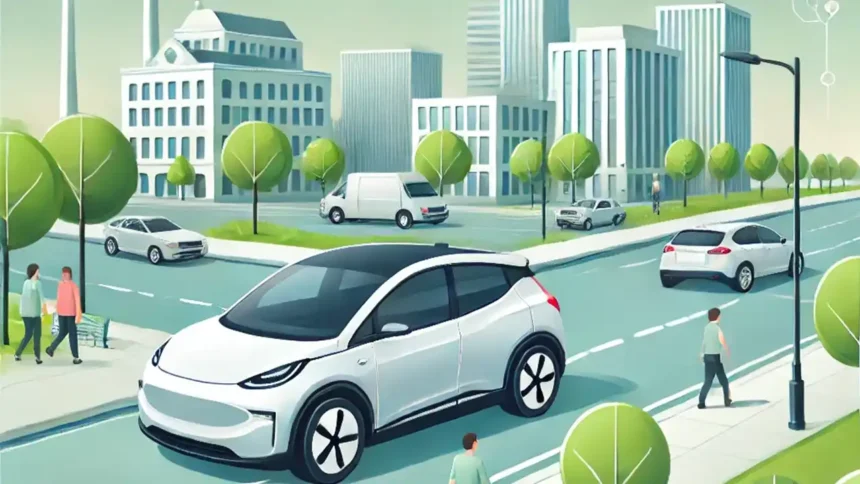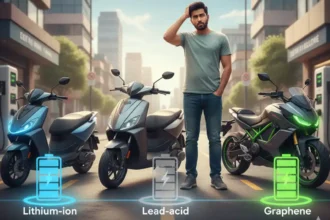Why Should You Switching to Electric Cars: Health Benefits of Electric Cars You Need to Know
Electric cars have been making waves for years, not only for their contribution to cleaner energy but also for the significant health benefits they offer. The transition to electric vehicles (EVs) is more than just a technological shift; it’s a powerful step toward cleaner air, lower health risks, and improved well-being. With increasing studies highlighting the advantages of EVs over gasoline-powered vehicles, understanding these benefits is vital as we move toward a greener future.
Health Benefits of Electric Cars
1. Reduced Air Pollution and Respiratory Health
One of the standout health benefits of electric cars is their role in reducing air pollution. Gasoline vehicles produce pollutants like carbon monoxide, nitrogen oxides, and particulate matter, which contribute to serious health issues like asthma, heart disease, and lung cancer. Electric vehicles, on the other hand, release zero tailpipe emissions, helping to cut down on these harmful pollutants in the air.
According to research, areas with higher numbers of electric vehicles have shown a notable decrease in emergency room visits due to asthma, as reduced pollution levels lessen the severity of respiratory diseases. For cities struggling with air quality issues, the adoption of electric vehicles could be a game-changer.
2. Decreased Greenhouse Gas Emissions
The use of electric cars also greatly reduces greenhouse gas emissions, which are a significant contributor to climate change. While EV production involves some emissions, they quickly make up for it during their lifespan, as they produce far fewer greenhouse gases compared to traditional gasoline-powered vehicles. Studies indicate that EVs can reduce lifecycle greenhouse emissions by 60% to 68% depending on the energy source, such as wind or solar power, used to charge them.
The reduction in greenhouse gases not only helps slow climate change but also mitigates related health risks, including those arising from extreme weather events and heat waves. These climate-related health impacts are reduced as electric cars contribute to cleaner air and a more stable climate.
3. Lower Noise Pollution Levels
Beyond improving air quality, electric vehicles also significantly reduce noise pollution. The quiet nature of electric motors contributes to less urban noise, making streets and public spaces calmer and more pleasant. Excessive noise pollution, common in cities with high traffic, has been linked to stress, sleep disturbances, and cardiovascular issues. Electric cars help reduce these risks by keeping noise levels lower, benefiting both physical and mental health.
4. Long-Term Public Health Savings
Studies suggest that a switch to electric vehicles could save billions in healthcare costs over time. A large-scale adoption of electric cars would reduce the rates of illnesses related to air pollution and noise, such as respiratory problems, heart attacks, and stroke. The American Lung Association estimates that transitioning to zero-emission vehicles could bring over a trillion dollars in public health benefits in the United States, thanks to fewer medical expenses and fewer sick days.
5. Enhanced Community Health Equity
Electric cars offer potential benefits in terms of environmental justice. Many low-income communities suffer disproportionately from traffic-related pollution due to their proximity to busy roads and lack of access to cleaner transportation options. The increased adoption of electric vehicles in these areas could reduce air pollution, which would significantly improve the health outcomes of these communities.
6. Supporting Active Transportation Options
Electric cars align well with a more comprehensive strategy for healthier communities, which includes encouraging active transportation options such as walking and cycling. By reducing traffic-related pollution, electric vehicles make cities safer and more appealing for outdoor activities. Cleaner air and quieter streets can also support initiatives for parks, green spaces, and pedestrian-friendly areas, all of which promote physical fitness and mental well-being.
Conclusion
Electric cars represent more than just an eco-friendly alternative; they offer wide-ranging health benefits that contribute to individual and community well-being. From reducing air and noise pollution to supporting healthier communities and lowering healthcare costs, the health advantages of electric vehicles are vast. As electric vehicle adoption grows, these benefits will become more pronounced, helping pave the way for a cleaner, healthier world.
FAQs
How do electric cars improve air quality?
Electric cars release zero tailpipe emissions, which helps reduce pollutants that contribute to poor air quality and respiratory health issues.
Are electric vehicles quieter than traditional vehicles?
Yes, electric vehicles operate more quietly, which reduces noise pollution in urban areas.
How do electric cars impact climate change?
Electric vehicles produce fewer greenhouse gases over their lifecycle compared to gasoline vehicles, helping to reduce the impacts of climate change.
Can electric cars benefit low-income communities?
Yes, by reducing traffic-related pollution, electric cars can improve air quality in areas heavily impacted by traditional vehicle emissions, benefiting these communities.





